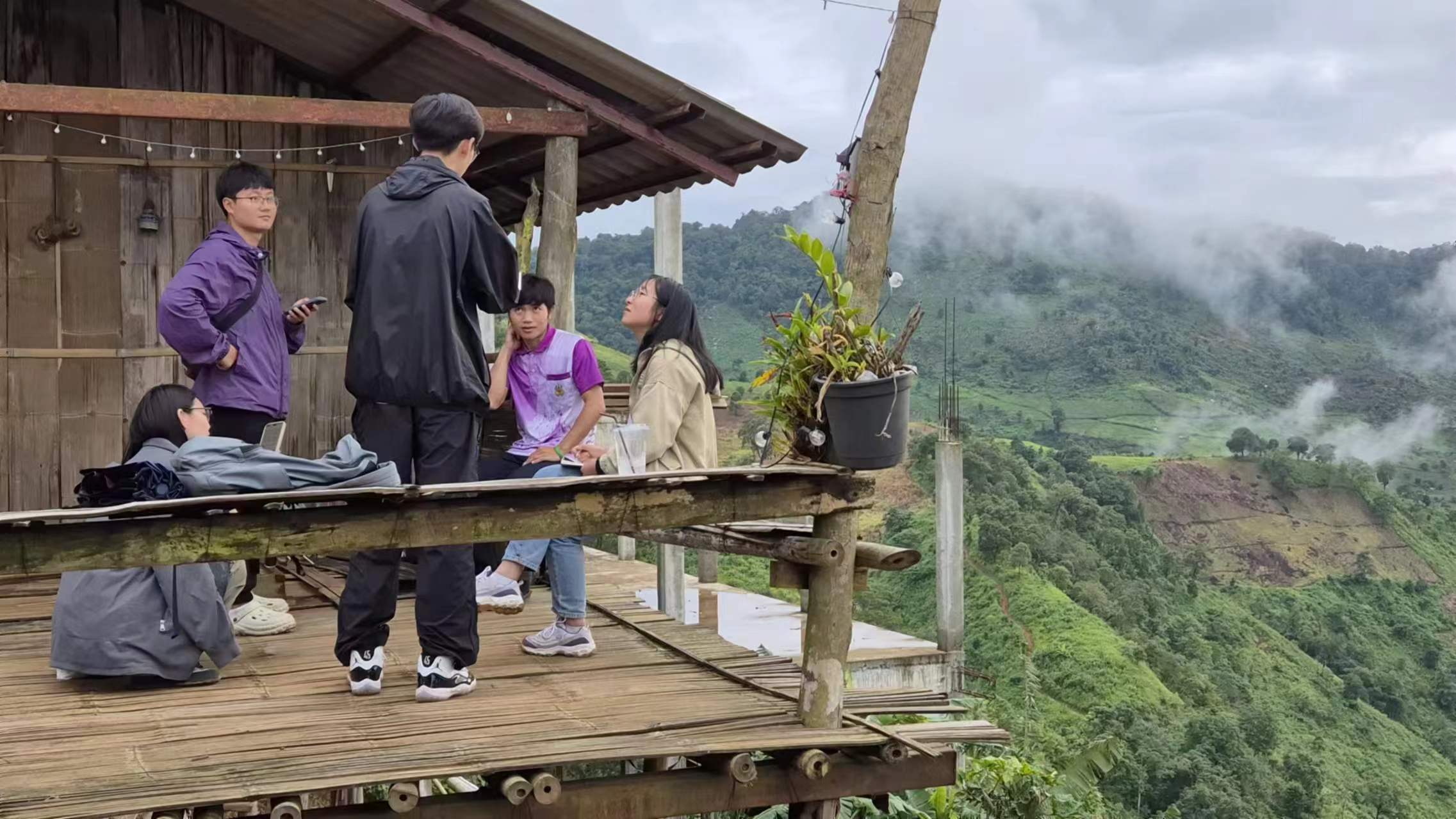From 5-18 August a group of students and professors from Yunnan University’s School of Ethnology joined Chiang Mai University students and professors on a two week course of lectures in research methodology, academic writing, and short field work to produce collaborative papers exploring the agricultural transition of ethnic groups and livelihoods throughout Northern Thailand.
After several days of lectures and discussions at the Faculty of Social Sciences and a quick excursion to visit the Huay Hin Lad Nai community, the Sino-Thai summer school group split into four field sites: Ban Thung Kwang Thong and Nor Lae community—both in Fang, Chiang Mai—and Doi Chang and Mae Chan Tai in Mae Suai, Chiang Rai. Each community has a unique ethnic, agricultural, and geographic context with Akha, Lisu, Lahu, Chinese Yunnanese, and Dara Ang people working in a variety of agricultural fields on everything from coffee to avocados, oranges, persimmons, and organic vegetables. Alongside these agricultural livelihoods are new emerging trends in ways of making a living, including formal jobs like teachers and government workers, tourism related jobs, ethnic and agriculture product content makers and sellers on various social media outlets, and even international migration to third countries like Korea, Japan, and Australia.
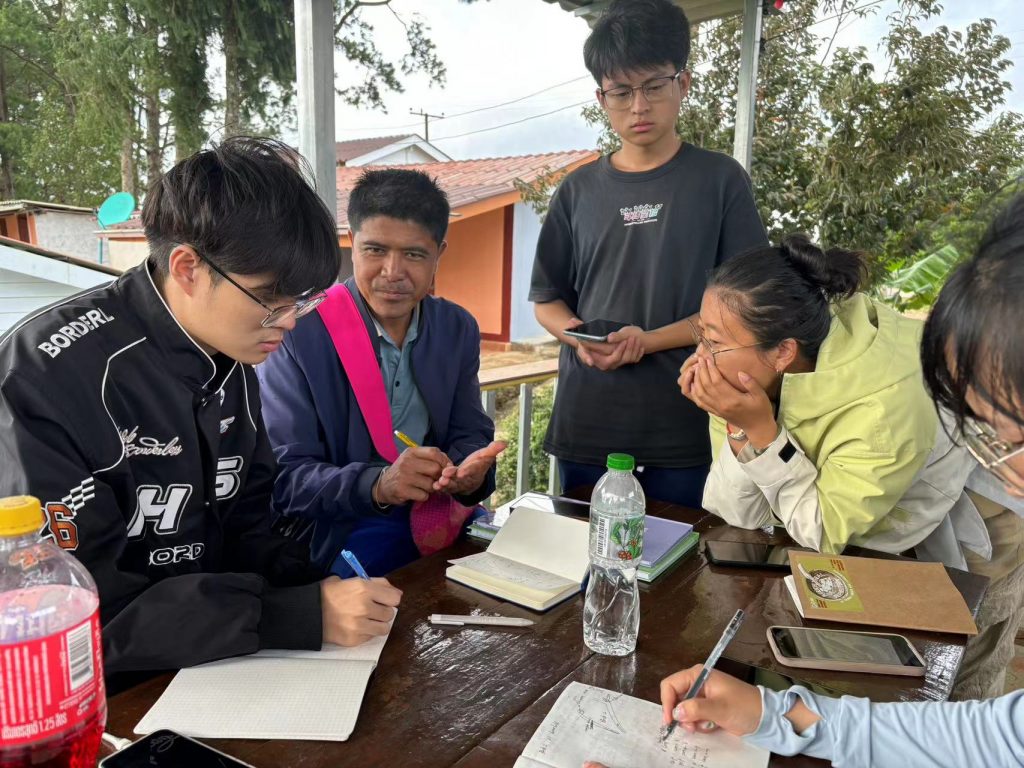
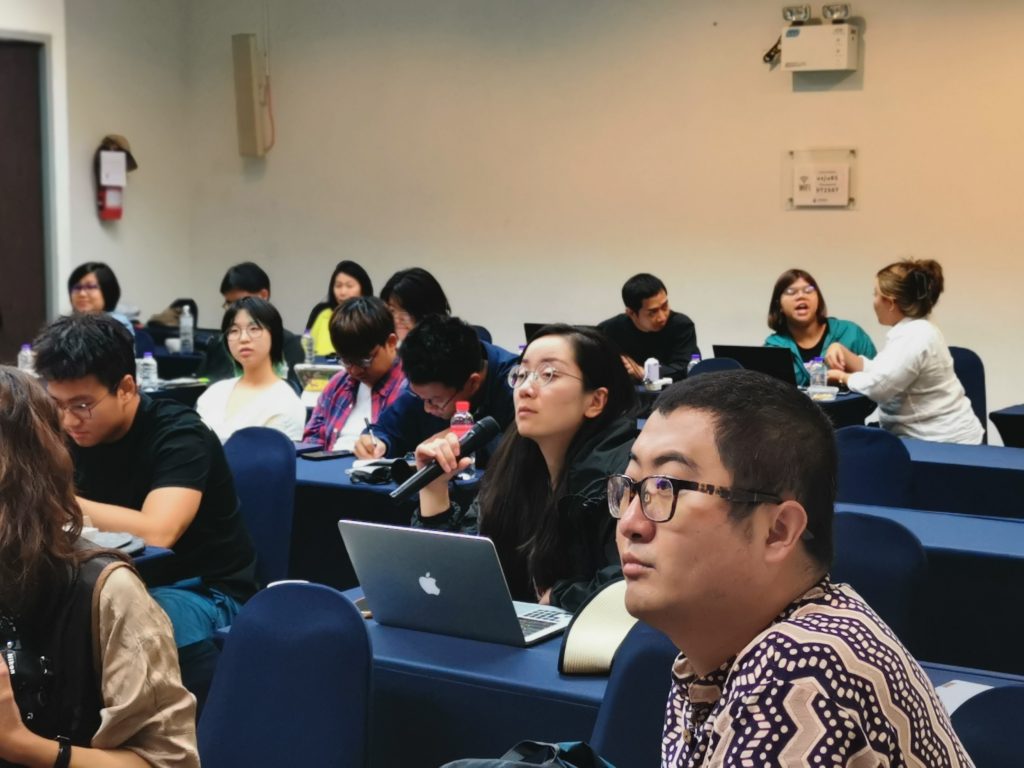
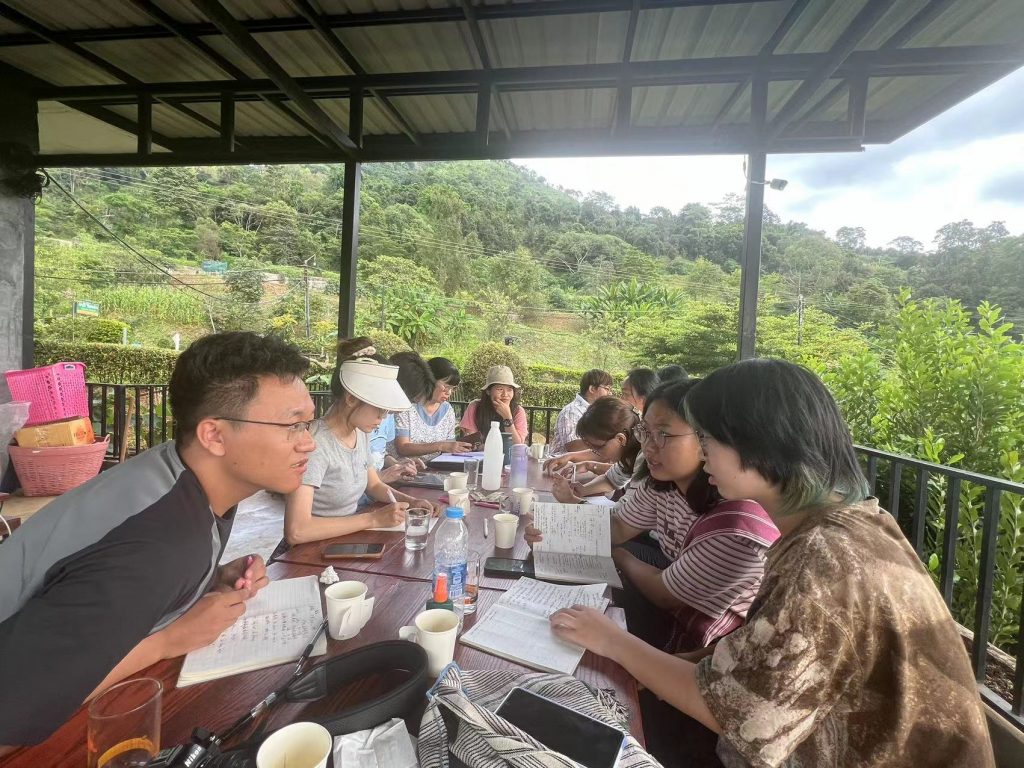
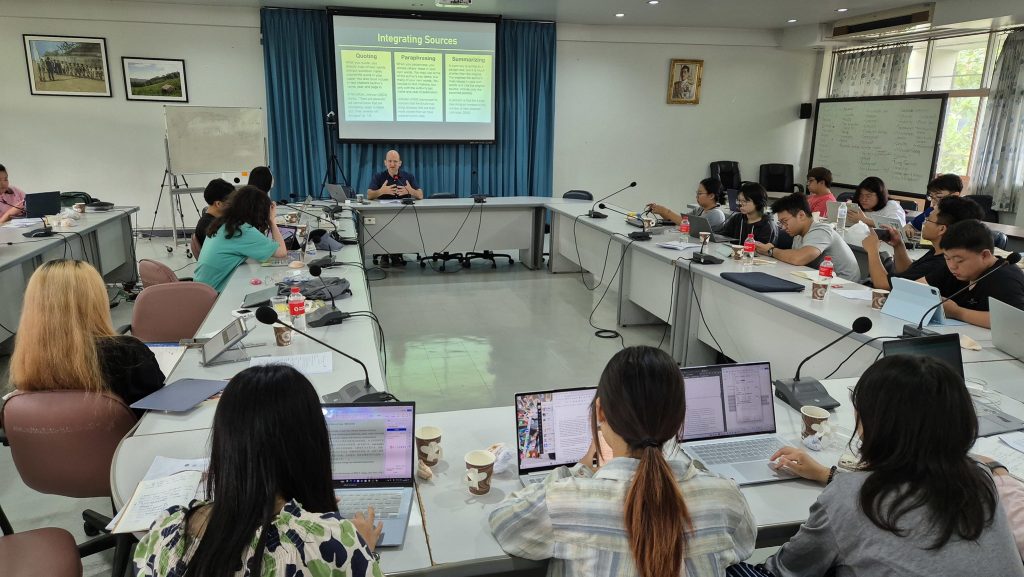

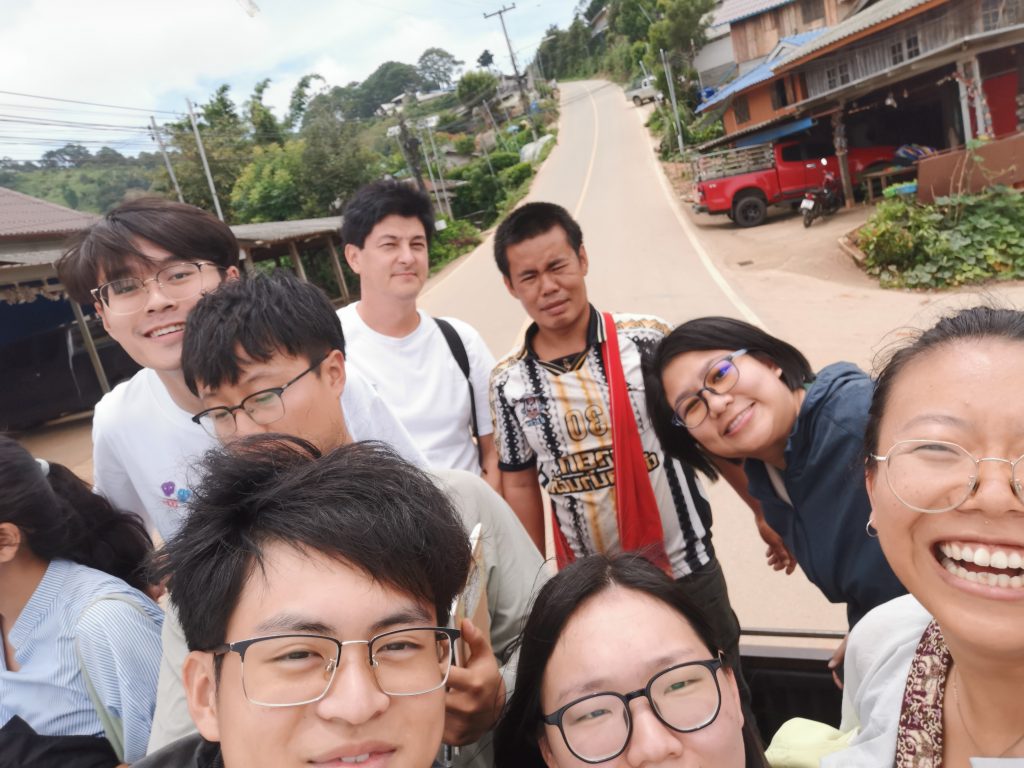

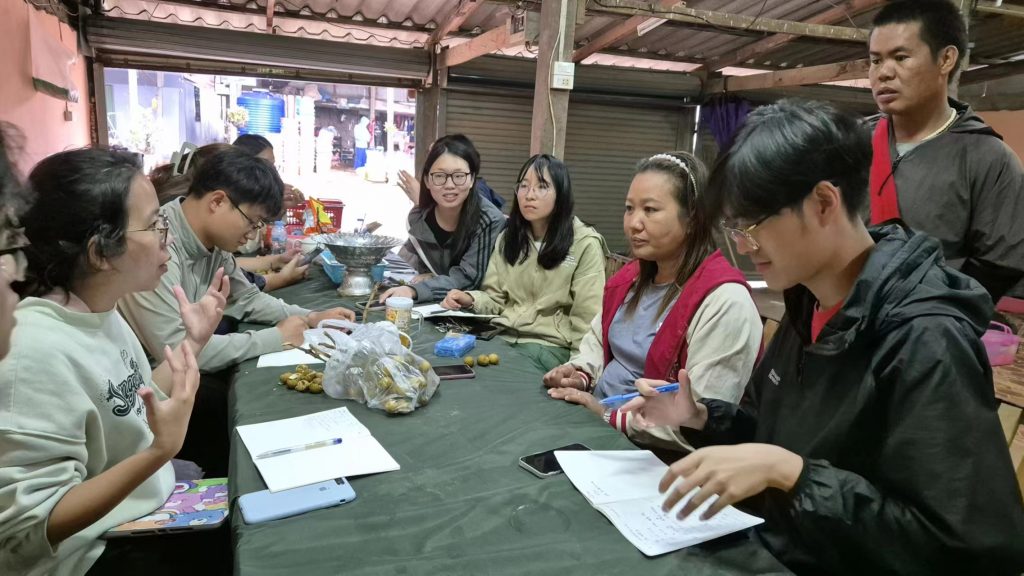

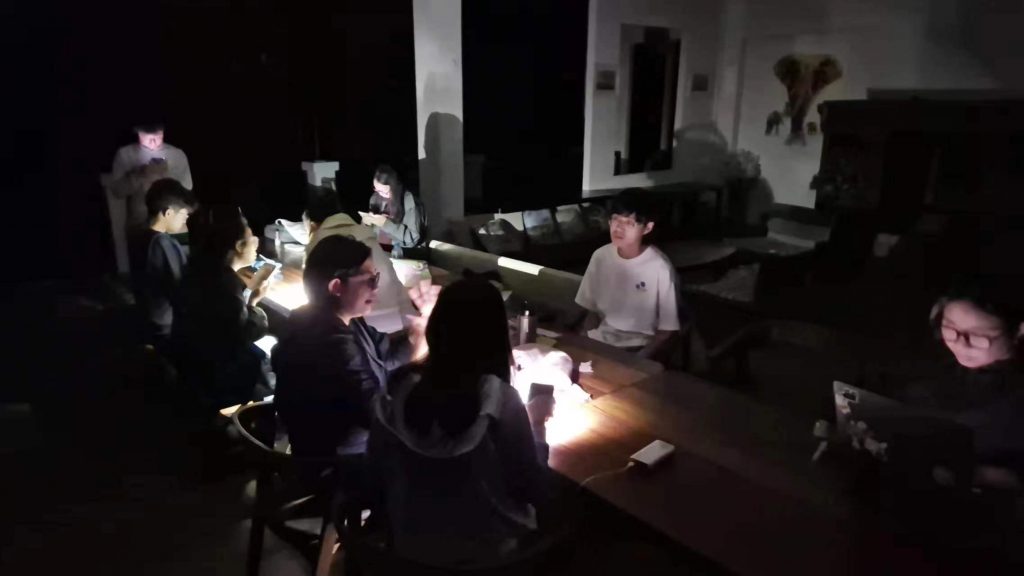
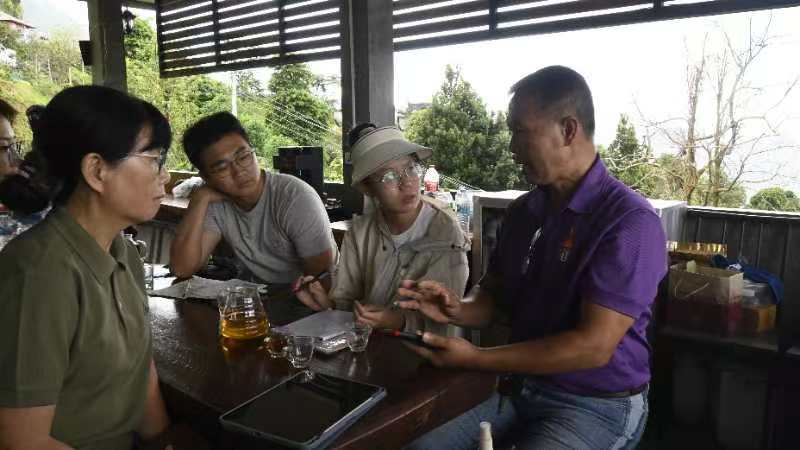
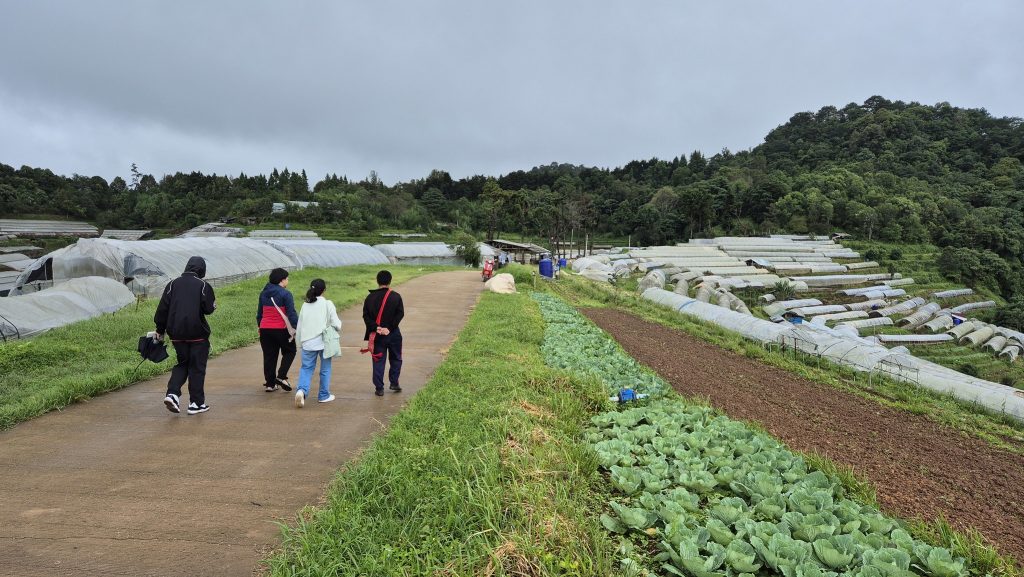
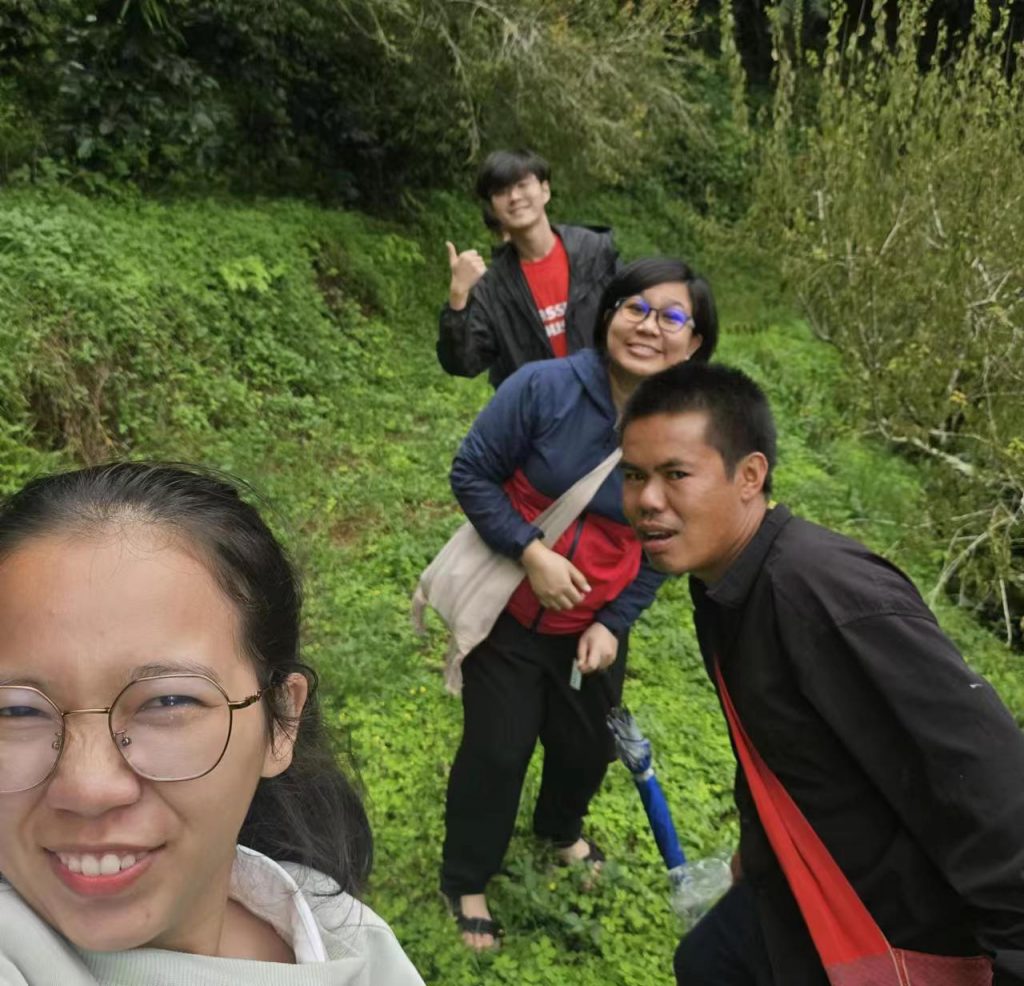
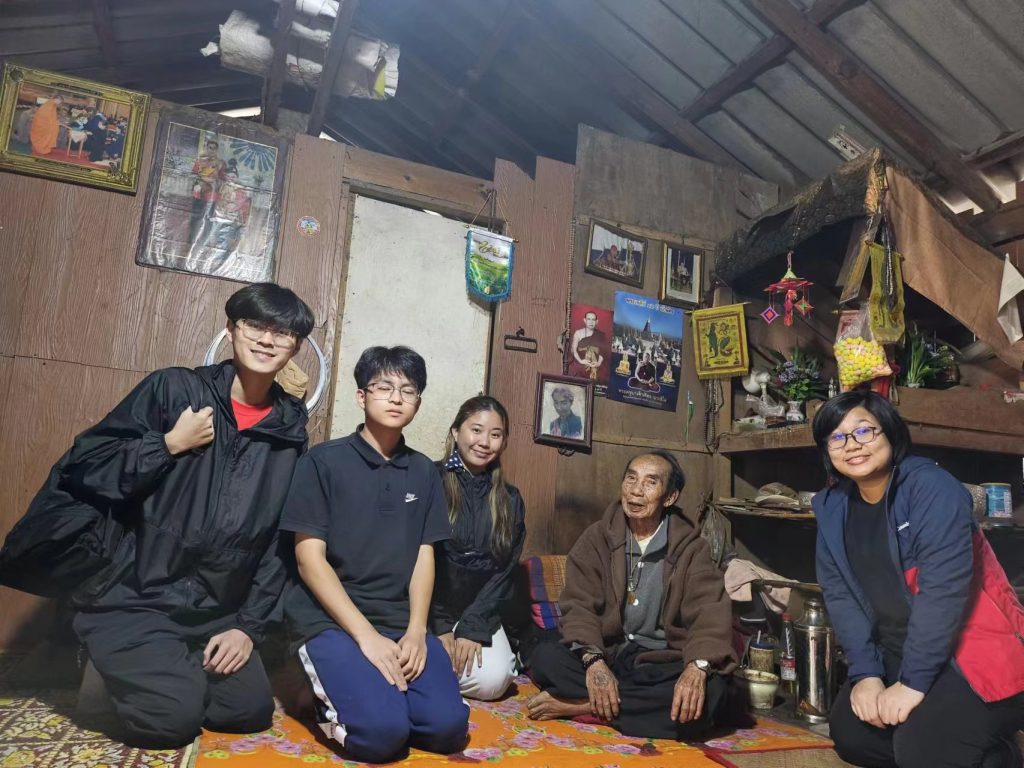



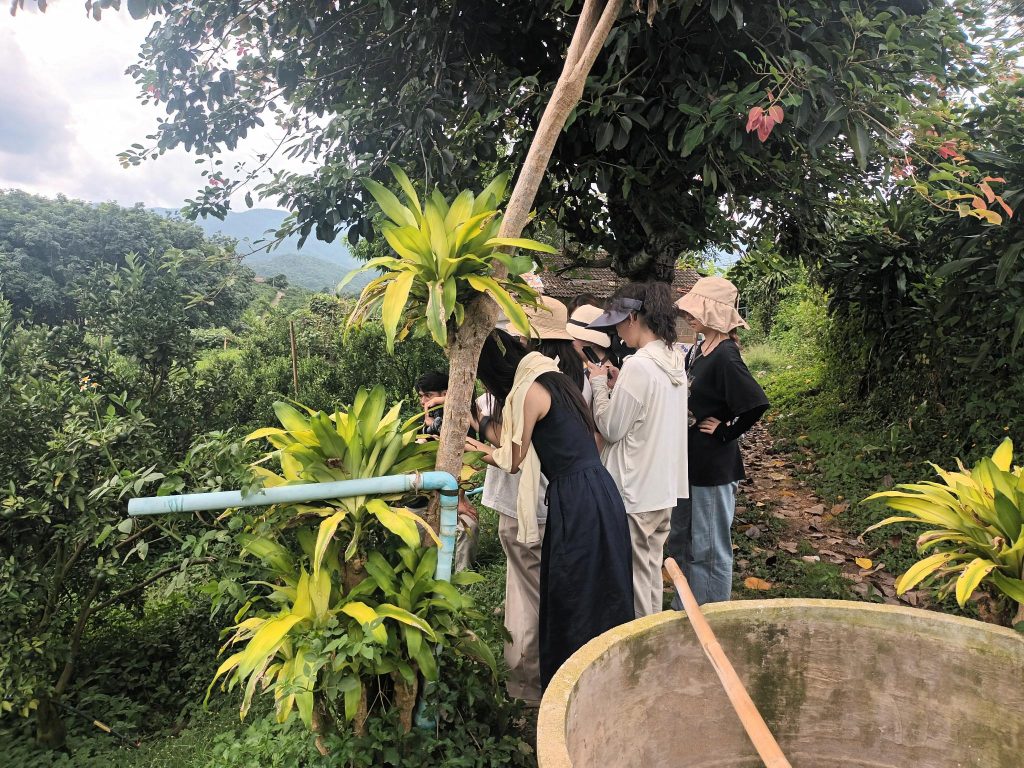
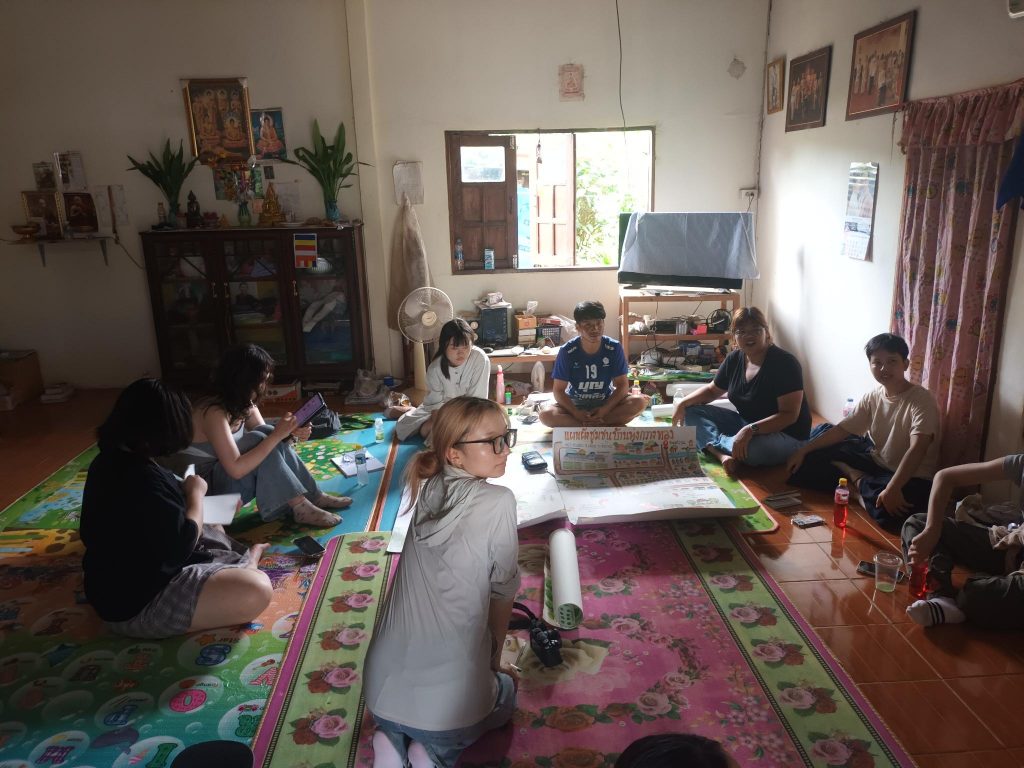

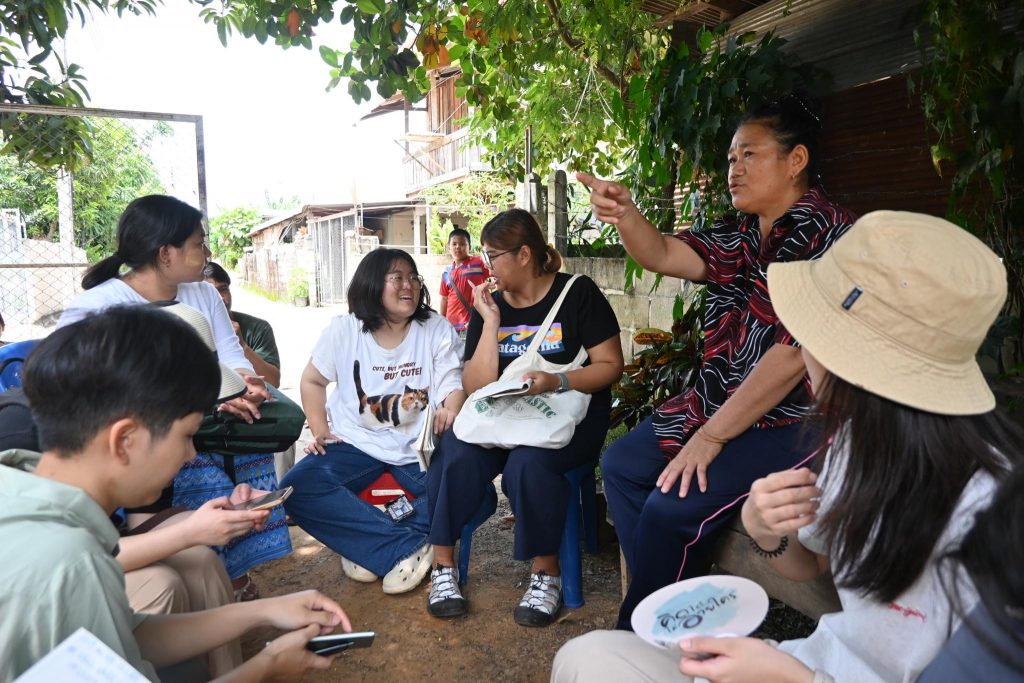
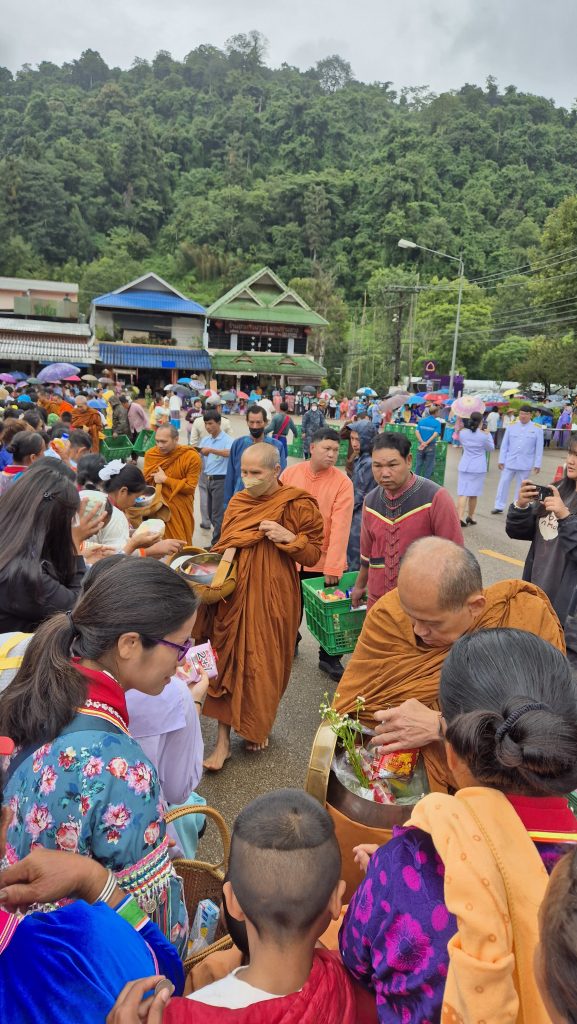
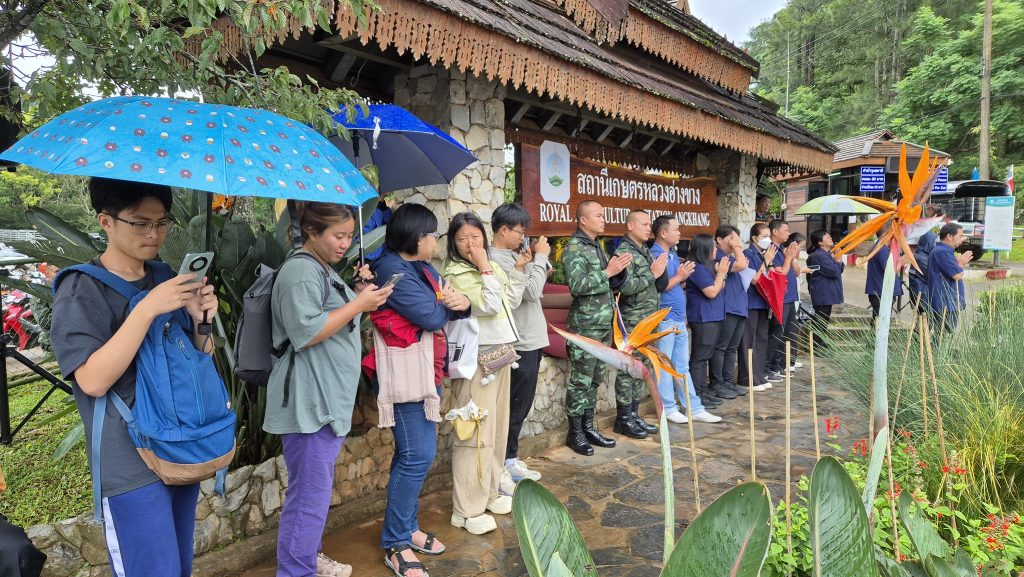
After gathering rich life stories, interview data on local governance and livelihoods, and observations of traditional culture and uses of modern technologies by people in the various communities, students have begun developing papers that explore the range of intriguing transformations and adaptations happening in these complex communities of people who negotiate between multiple identities, official statuses, and between exercising agency and being subject to outside authority. Papers and final presentations will be finalized for publication after the second phase of the summer school is completed in a workshop at Yunnan University in Kuming in the coming months.

